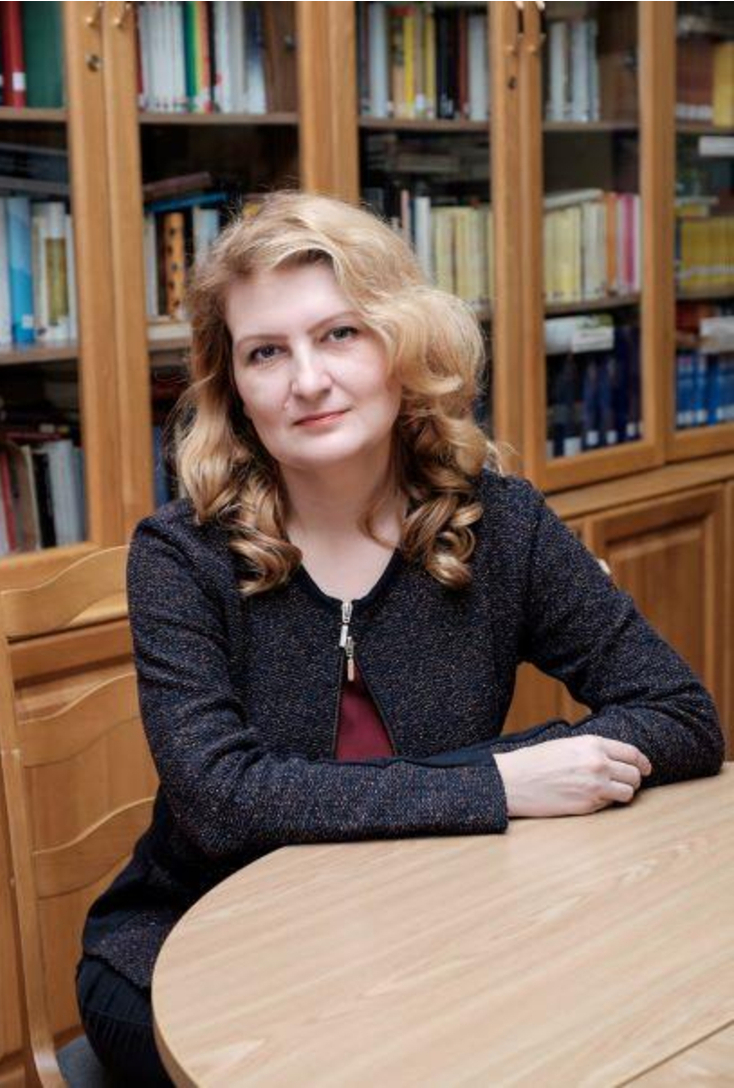
YULIYA M. SHEMCHUK
Dr. Sci. (Philology), Professor. Moscow State Linguistic University (Moscow, Russian Federation), Professor of Linguistics and Professional Communication in the Humanities and Applied Sciences Department
ORCID: https://orcid.org/0000-0001-5963-978X
RSCI: SPIN-code: 6006-3987, AuthorID: 480331
ResearcherID: AAI-5555-2020
E-mail: shemchuk.j@mail.ru
EDUCATION
Khakass State University, specialty “Philology (foreign languages)”, honours
SPHERE OF SCIENTIFIC INTERESTS
German studies, nomination theory, semasiology, neology, media linguistics, sociolinguistics, cognitive linguistics, linguoculturology, methods of teaching a foreign language, theory and methods of professional education, educational law
PROFESSIONAL ACTIVITIES
2009–2015 – Head of Translation and Translation Studies Department, Sholokhov Moscow State University for the Humanities
2016–2017 – Head of Linguistics and Professional Communication in the Field of Foreign Regional Studies Department, Moscow State Linguistic University
2017–2018 – Head of Linguistics and Professional Communication in the Humanities Department, Moscow State Linguistic University
SCIENTIFIC AND ORGANIZATIONAL WORK
Expert of the Russian Science Foundation
Member of the Russian Union of Germanists
Member of the editorial boards of the journals:
Journal of Military Philology, member of the editorial board
Vestnik IKBFU. Philology, Pedagogy, and Psychology, member of the editorial board
Prepared and defended 3 candidate dissertations
LANGUAGES
German (Advanced)
English (Upper-Intermediate)
SIGNIFICANT PUBLICATIONS OF RECENT YEARS
Articles
Linguistic sensory of the interlocutor’s image in H. Boll’s novel “The Clown”. Neofilologiya = Neophilology, 2023, vol. 9, no. 3, pp. 534-544. https://doi.org/10.20310/2587-6953-2023-9-3-534-544 (in co-authorsip)
The language of the German blogosphere in the light of the problem of paradigmatic relations of its lexical units. Mir nauki, kul’tury, obrazovaniya = World of Science, Culture and Education, 2021, no. 5 (90), pp. 386-389. https://doi.org/10.24412/1991-5497-2021-590-386-389 (in co-authorsip)
Cognitive approach to the study of metalinguistic parallels. Kognitivnye issledovaniya yazyka = Cognitive Studies of Language, 2021, no. 3 (46), pp. 873-876.
Sports neologisms as a means of objectifying the universal in the German language world picture. Baltiyskiy gumanitarnyy zhurnal = Baltic Humanitarian Journal, 2021, vol. 10, no. 1 (34), pp. 405-408. https://doi.org/10.26140/bgz3-2021-1001-0095
Distance learning technologies in teaching a foreign language: challenges and opportunities. Vestnik Moskovskogo universiteta. Seriya 20: Pedagogicheskoe obrazovanie = Lomonosov Pedagogical Education Journal, 2020, no. 4, pp. 89-95. https://doi.org/10.51314/2073-2635-2020-4-89-95
Metalinguistic parallels: features of their manifestation in scientific, academic and everyday discourses. Vestnik Moskovskogo gosudarstvennogo oblastnogo universiteta. Seriya: Lingvistika = Bulletin of Moscow Region State University. Series: Linguistics, 2020, no. 4, pp. 61-70. https://doi.org/10.18384/2310-712X-2020-4-61-70 (in co-authorsip)
Книги
Realizatsiya antropotsentricheskogo printsipa v sisteme yazyka [Implementation of the Anthropocentric Principle in the Language System]. Moscow, Moscow State Linguistic University Publ., 2023, 164 p. (in co-authorsip)
Obnovlenie leksiki sovremennogo nemetskogo yazyka []. Moscow, Sholokhov Moscow State University for the Humanities Publ., 2010, 182 p.



















